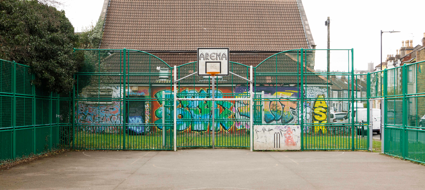Foster carers can make a huge difference to the lives of children who have had difficult starts in life.
Being a foster carer can be a really challenging role but, unfortunately, we don’t know much about what works best in supporting foster carers in caring for the children who are placed with them.
The Reflective Fostering Study is offering opportunities for local authorities and independent fostering agencies to receive fully funded training and support for foster carers. Would your organisation be interested?
Funded by the National Institute for Health Research (NIHR), this project aims to evaluate how well one particular type of foster carer support, called the Reflective Fostering Programme, works in improving the wellbeing of children living in foster care and supporting placement stability through working with foster carers.
Previous research has indicated that the Reflective Fostering Programme may help foster carers to feel less stressed and better able to support the children in their care, with promising signs that children's wellbeing is also improved.
The programme is a new approach to supporting foster carers developed by the Anna Freud Centre, in collaboration with the NSPCC, foster carers and social care professionals. Watch our video to hear from Dr Sheila Redfern, one of the programme developers, foster carers and facilitators to learn more about this approach to supporting foster carers.
The Reflective Fostering Study, led by University College London (UCL), is currently recruiting 720 foster and kinship carers across the UK – that’s more than 1 in 100 of all fostering households in England.
We are working with fostering support services in local authorities and independent fostering agencies across England, including Kent, Hertfordshire, Devon, Lancashire, Bristol, London and elsewhere. When fostering services join the study they receive:
- Fully funded training and supervision for selected staff (and local foster carers) in how to deliver the Reflective Fostering Programme.
- An opportunity for foster and kinship carers to contribute to a nation-wide study that will help us to learn about what support carers need, and to have their voices heard.
- Wrap around support from our central research team to recruit foster carers and kinship carers to join the study.
- An opportunity for services and staff to gain experience of being involved with research and to be trail-blazers in the development of the Reflective Fostering Programme.
We are at a really exciting point in the study – currently, we are looking to expand the number of local authorities and independent fostering agencies we work with before our next research phase in September 2022.
We are particularly interested in working with services with a significant proportion of carers from minoritised communities, as studies have suggested that these groups are sometimes under-represented in research in children’s social care.
The study will provide important information to local authorities and commissioners to help ensure that carers are provided with the best, evidence-based support for their important role. We hope that the findings of this study will contribute to helping our understanding of what works to support foster carers and to improve the wellbeing of the children they care for, and that the outcomes of this study will help guide future commissioning decisions for local authorities wishing to invest in evidence-based support for carers in their area.
Contact
If you would like more information, or are interested in finding out how your carers could take part in the study, please contact nick.midgley@annafreud.org.


